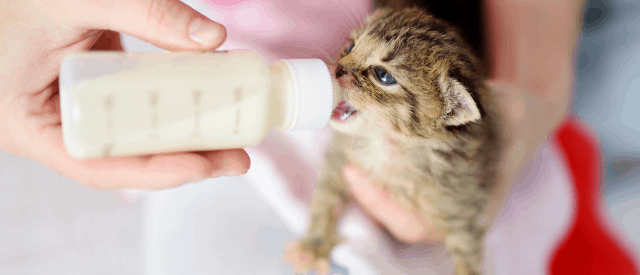You come across a miracle in your garden, the smallest kittens you’ve ever seen! They’re gorgeous, but so tiny, and they’re meowing constantly. In the best case scenario their mother will prance around the corner post-hunt, ready to provide for her babies once again. Unfortunately, there are many situations that will force a mother cat to give birth and abandon her kittens, making them orphaned kittens.
When helping to care for newborn kittens, it is always best to have them be cared for by their mother. However, there are situations where this is not possible. If the mother cat is not able to care for her babies, or if feral kittens are found with no mother in sight, you will need to step in and provide care for all of them.
Newborn kittens need constant care, so a local rescue not a shelter is the place for them
In a situation where orphaned feral kittens have been discovered, animal shelters may have contacts with local rescues who can help care for the kittens. Shelters that lack access to this valuable resource may not be able to accommodate very young kittens due to the need for constant care.
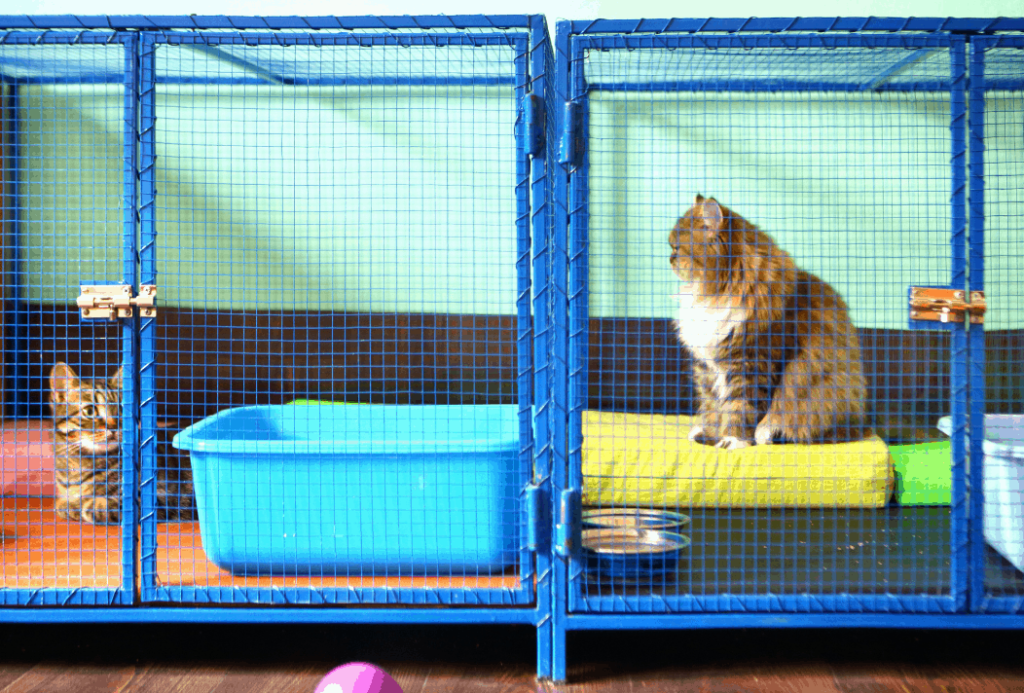
Fostering the newborn kitten could be it’s best chance for survival
If you choose to foster them, you will be providing an important service and will also prevent the kittens from being put to sleep.
Kittens who are younger than two weeks of age will need round-the-clock care. Newborn kittens’ eyes are completely closed and usually won’t open until eight to fourteen days later. Newborns are not able to do much – about 90% of their day is spent eating and sleeping!
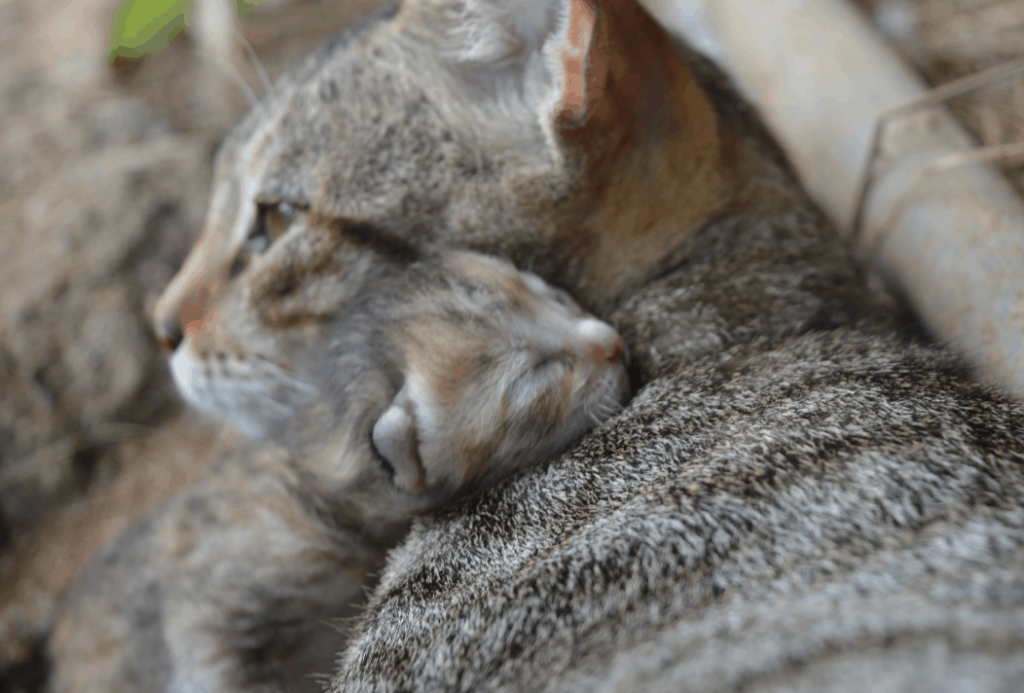
So, how do you take care of orphan kittens at home?
Keep the kittens somewhere safe and warm
It is important to keep the newborn kittens in a safe, quiet area and to keep them warm since they cannot regulate their body temperature at this age. It is best to keep them in a box that has tall sides and is lined with toweling.

Come up with a way to distinguish the kittens from each other
This is important because you will need to keep track of their individual needs and health concerns as they grow. If you have a large litter of kittens, or if the kittens are difficult to distinguish from one another due to similar coat patterns and colors, there are ways to keep track of who is whom. You can use small paper collars with different colors, or you can apply a very small amount of nail polish on the tip of the front toenails. Avoid using permanent markers on their skin.
Ensure a high-quality milk replacer and regular feeding
Brand new kittens will need to eat every two to four hours until they are two weeks of age. After that, they can eat every four to six hours until they are four weeks old.
Orphaned kittens should be fed a high-quality milk replacer that is specifically made for kittens. Avoid cow’s milk and goat’s milk since these are not as nutrient dense and may cause gastrointestinal upset. After four weeks, they can gradually transition to a commercial kitten food. Dry and wet kitten foods are acceptable, and table scraps should be avoided.
Be very careful not to overfeed the orphan kittens
It is possible to overfeed kittens, and some can aspirate the formula and develop pneumonia as a result. When feeding kittens with milk replacer, use a clean bottle every time and make sure the dropper only releases one drop at a time.
During meals, keep the kittens horizontal and only feed about 15 to 20 milliliters of formula at a time. They also need about 200 milliliters of water a day, but this should also be split up into smaller portions, and some of this requirement is met by the feeding of formula.
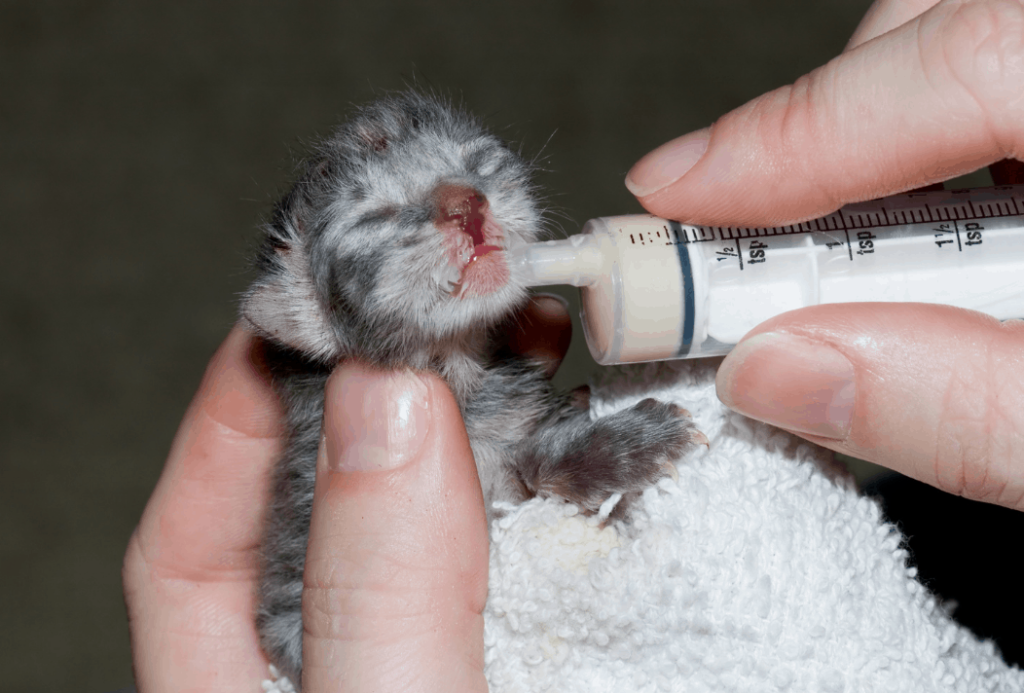
Do not force-feed kittens
You should feed them until they are full and stop suckling. You can keep track of how much they eat for each meal in a journal. If a kitten starts to develop diarrhea, consider feeding a little less per meal but increase feeding frequency.
Be very careful with the kitten’s formula
Do not feed formula that was mixed more than 24 hours ago. Unused formula should be kept refrigerated, and if it has been kept at room temperature for more than one hour, discard the formula.
Create a daily journal to monitor weight gain: Ideally, healthy kittens should double in size each week
The average newborn kitten weighs about 100 grams at birth and gains 100 grams of weight each week until they are six months old. This is an average of seven grams per day. A gram scale is important in order to keep track of a kitten’s body weight, and you can create a daily journal to monitor trends. Check their body weight every couple of days until they are five weeks old. After that, once-a-week body weight checks are suitable.
You’ll need to help the kittens do their business and keep track of it, too!
Kittens will need assistance to go to the bathroom. You can use a wet, warm washcloth or a moistened cotton ball and gently rub the area between the kitten’s anus and genitalia. This will stimulate urination and defecation. Kittens should urinate and defecate at least once a day. When dealing with multiple kittens, it helps to keep track of elimination in a journal. You can also use this to keep track of stool consistency. A kitten should be able to use a litter box once they are about three weeks old.
Your may need to assist your kittens in keeping clean
Some kittens can be messy eaters, or they can become dirty if urine and faeces becomes caught in the fur around their hind end. Avoid pouring water on them or putting them in a bathtub. You can bathe a kitten by using a wet, warm washcloth. You can do this once or twice a week.
Orphan kittens need to be vaccinated earlier
Preventive care should start at a younger age for orphaned kittens because they likely did not have exposure to their mother’s colostrum.
Colostrum is the first milk that kittens get from their mother in the first one to three days of their life. It contains their mother’s antibodies which offer protection from disease for the first eight weeks of their life. This is typically when a kitten can receive its first vaccinations. If an orphaned kitten hasn’t received colostrum, vaccines should begin at four weeks of age. For more information, check out our article on vaccinations in cats.
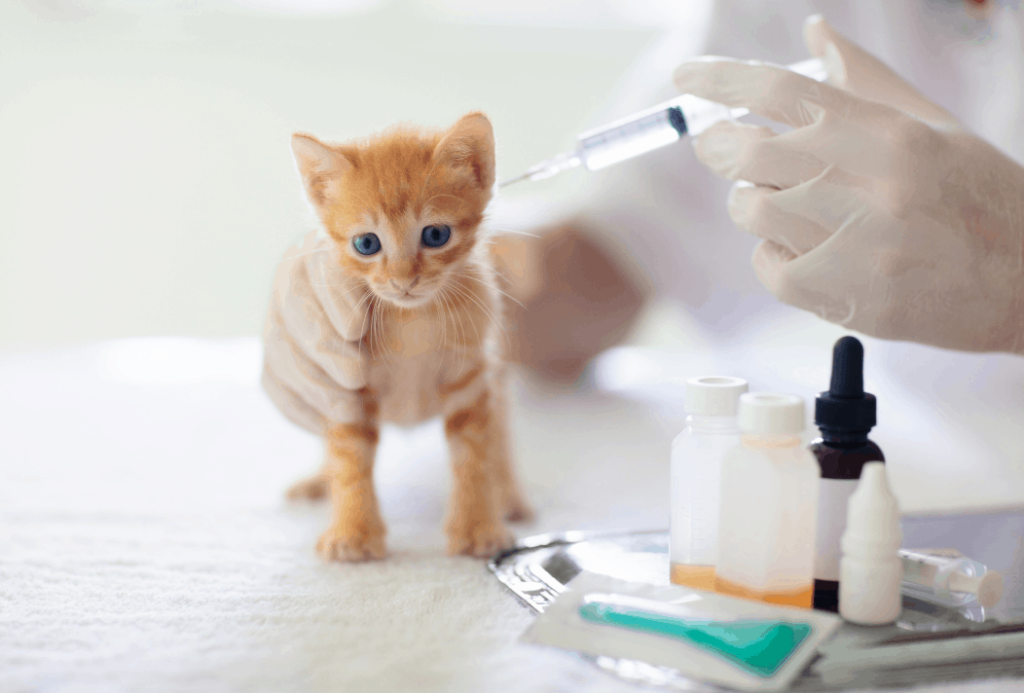
Raising orphaned kittens is all consuming but also very rewarding
When taking orphaned kittens into your care, the task can seem daunting, but it is ultimately very rewarding.
Your love, care and interaction at this young stage will help them to socialize and turn into lovely, affectionate cats when they are older; ready to become beloved members of your family or another forever home. If you are concerned about the health of your newborn kittens, make sure to contact your veterinarian for advice.



